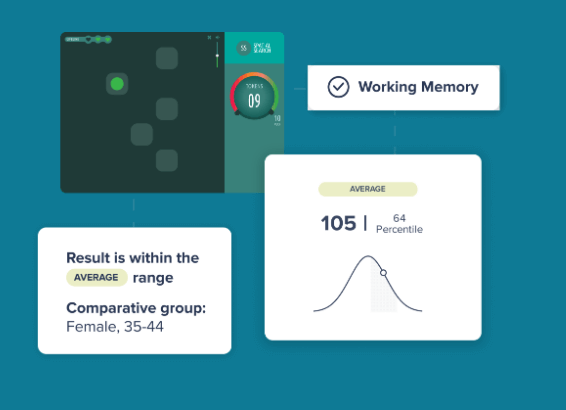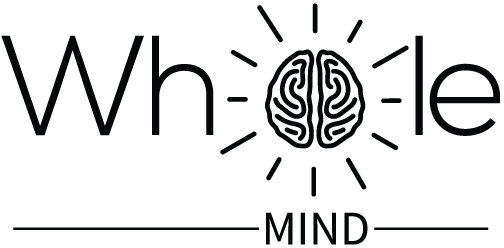Using a tablet, desktop, or laptop computer, you’ll complete a series of quick, fun, and engaging tasks as part of cognitive testing—validated tools that measure your memory, concentration, reasoning, and verbal abilities, all core areas of cognition that may be affected by a mental health condition.
Each tasks that take 1.5 – 3 minutes each and as soon as you’ve completed the assessment, a report will be instantly generated and available for your healthcare professional to review with you.
Explore the connection between mental health and mood disorders and fundamental cognitive functions vital for quality of life by undertaking a cognitive evaluation to grasp their impact on cognition.
Deductive reasoning is the ability to apply rules to information in order to arrive at a logical conclusion.
This ability is often used in scenarios such as evaluating a complex argument and deciding if you agree, or solving everyday math problems, such as splitting the bill at a restaurant.
Planning is the ability to the ability to sequence behaviour in an orderly fashion to reach specific goals.
This ability is often used in scenarios such as deciding the order of items to pack in the trunk of a car, or organizing your schedule to effectively balance work, chores, and social life.
Visuospatial processing is the ability to effectively process and interpret visual information, such as complex visual stimuli and relationships between objects.
This ability is often used in scenarios that require precise assessment and reasoning about objects, such as constructing models.
Mental rotation is the ability to manipulate mental representations of objects in order to make valid conclusions about what objects are and where they belong.
This ability is often used in scenarios involving assembly, such as. building a deck, putting or planning a new layout for a room.
Working memory is the ability to temporarily hold information in memory and manipulate or update it based on changing circumstances.
This ability is often used in scenarios such as systematically searching for a lost item in your home, and keeping in memory places you’ve already searched, so that you do not search in that same place again.
Episodic memory is the ability to remember and recall specific events, paired with the context in which they occurred.
This ability is often used in scenarios such as remembering which cupboard you put your groceries in, learning what each button does in a new app or device, or remembering who you talked to yesterday, and at what time.
Spatial short-term memory is the ability to temporarily store spatial information in memory.
This ability is often used in scenarios such as following a set of dance moves, or giving directions to someone for a route you just took.
Visuospatial working memory is the ability to temporarily hold information in memory, and manipulate it based on changing circumstances or demands.
This task involves reproducing a set of relationships between objects in space., This ability is often used in scenarios such as planning your day and the errands you need to run, then carrying out those errands in the correct order by memory.
Attention is the ability to focus on relevant details or differences.
This ability is often used in scenarios such as staying focused on a task when it counts (like driving), identifying similarities and differences when comparing two things, or noticing small interpersonal details, like a partner’s haircut.
Response Inhibition ls the ability to concentrate on relevant information in order to make a correct response despite interference.
This ability is often used in scenarios such as keeping your eyes on the road when driving despite passing distracting signs or people, or inhibiting your emotional gut reaction to a social media post to formulate a more rational answer.
Verbal short-term memory is the ability to hold information in mind and verbally rehearse it for as long as necessary.
This ability is often used in scenarios such as understanding long sentences by remembering the beginning of the sentence by the time you get to the end, or writing down a phone number or entering in credit card information from memory.
Verbal reasoning is the ability to quickly understand and make valid conclusions about concepts expressed in words.
This ability is often used in scenarios such as understanding complex every speech – e.g., “I didn’t know that he wasn’t going to show up.”, or giving clear verbal or written instructions to people who report to you at work.

Results for each task you complete will indicate where you stand relative to others in your age group. Over time, and as you progress through treatment, you’ll begin to see performance trends so that you can objectively evaluate how treatment is affecting you. Your healthcare professional will use this information during intake to ensure they target the right areas during treatment, and then re-assess periodically to measure progress.
